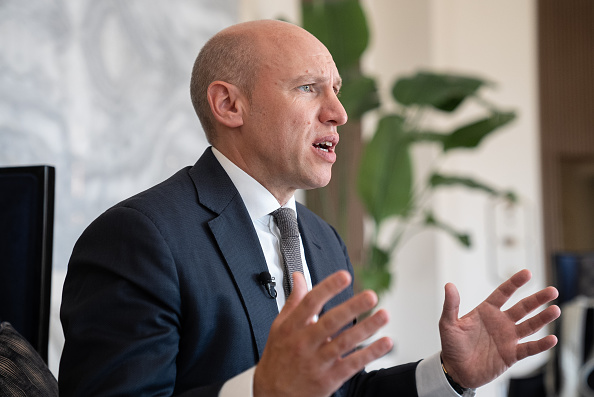A German state minister has called for foreign criminals convicted of serious offenses to be immediately deported and required to serve their sentences in their home countries — regardless of the prison conditions there.
Manfred Pentz, Hessian Minister for International Affairs (CDU), told Bild it was unacceptable for German taxpayers to fund the incarceration of foreign murderers and violent offenders and urged the new CDU-led administration to push ahead with agreements to facilitate their return before they have served their jail time.
“A day in a German prison costs about €200,” Pentz stated in an interview with the tabloid. “We could save German taxpayers substantial amounts of money by deporting these criminals consistently from the first day of custody.”
According to recent statistics from 2024 cited by the newspaper, 1,285 suspects in murder and manslaughter cases did not possess a German passport, with 442 identified as refugees.
Currently, German prisons house 531 convicted murderers, 526 convicted of manslaughter, and an additional 162 foreigners convicted of attempted murder. These offenders alone cost German taxpayers nearly €7.5 million per month, amounting to approximately €90 million annually.
Highlighting the financial burden, Pentz cited the case of Taleb al-Abdulmohsen, the Saudi national who committed the deadly vehicle attack at the Magdeburg Christmas market, killing six and injuring around 300 others, many severely and permanently.
Al-Abdulmohsen faces life imprisonment, potentially costing taxpayers approximately €1.5 million over a 20-year sentence.
“The superior prison conditions in Germany cannot justify keeping convicted murderers and rapists in our country,” Pentz argued, dismissing concerns about harsher prison conditions abroad as insufficient reason to retain foreign criminals.
“These criminals, after conviction, have no right to remain in Germany. They should immediately serve their sentences in their countries of origin,” he added.
The coalition government announced on Wednesday has vowed to deport Syrian and Afghan criminals but has not made any pledge to do so before they have served their custodial sentences in Germany.
Human rights laws are often used by foreign offenders to thwart such proceedings in Europe, with defense lawyers arguing that their clients serving time elsewhere can infringe on their right to a family life if they have settled in their new country.
Others argue that clients may suffer from mistreatment or discrimination during their sentence.
Outgoing Interior Minister Nancy Faeser said in a press conference last week that foreigners accounted for over 40 percent of all criminal suspects across Germany last year despite comprising 15 percent of the population.
Violent crime increased by 1.5 percent to 217,277 cases. Knife attacks alone surged to 15,741 cases, representing 7.2 percent of all violent crimes. In states like Bavaria, knife-related offenses more than doubled.
A total of 2,184,834 suspects were identified in 2024. Of these, 913,196 did not hold German citizenship, representing 41.8 percent of all suspects. Meanwhile, the number of German suspects fell by 3.9 percent to 1,271,638.






